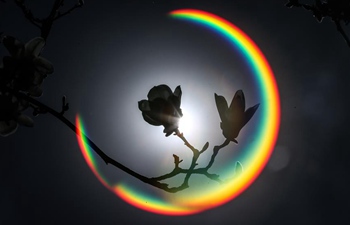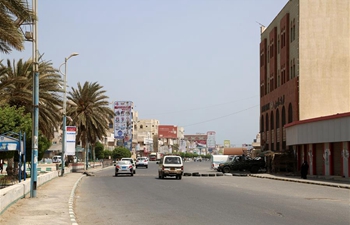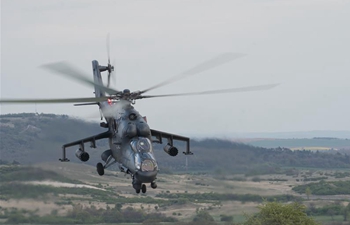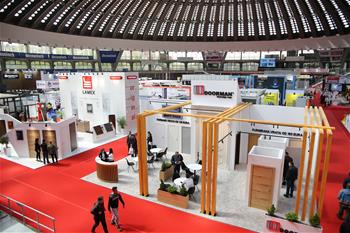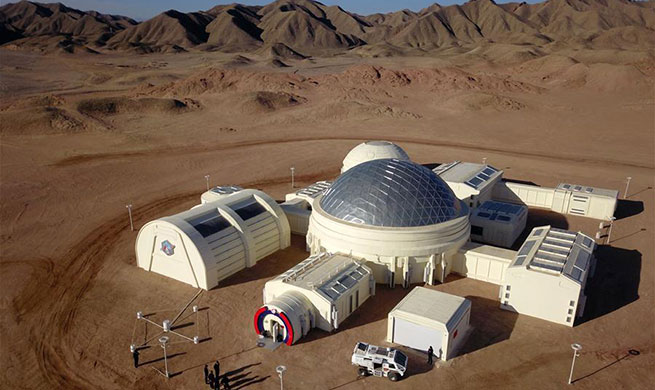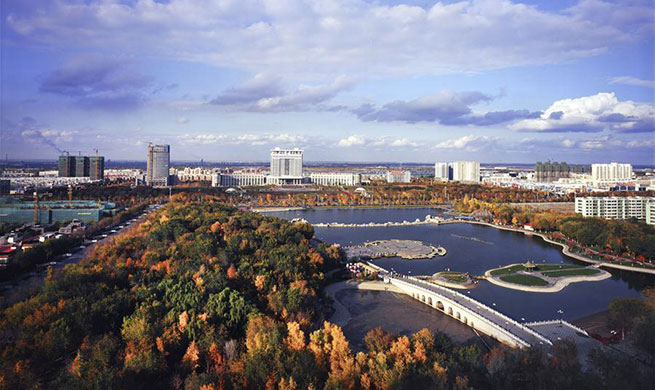WASHINGTON, April 18 (Xinhua) -- U.S. Attorney General William Barr defended his handling of special counsel Robert Mueller's investigative report on the Russia investigation, ahead of its much-anticipated release to Congress and the public on Thursday.
Barr told a press conference at the Justice Department that the report will be released to the chairman and ranking members of the Senate and House judiciary committees at 11 a.m. (1500 GMT), adding that it will also be posted on the department's website for the public after it is delivered to Congress.
The release would come nearly a month after Mueller concluded his investigation into the alleged Russian interference in the 2016 U.S. presidential election.
Mueller submitted a nearly 400-page report to Barr, whose 4-page summary of the report's "principal conclusions" states that there was no evidence of collusion between the Donald Trump's election campaign and the Russian government.
The special counsel, meanwhile, did not reach a conclusion on whether Trump had obstructed justice, said Barr's synopsis. The attorney general concluded Mueller's findings are "not sufficient" to support a charge.
Barr said Thursday that, while the special counsel and his team "investigated a number of links or contacts between Trump campaign officials and individuals connected with the Russian government," they found no evidence of collusion.
The attorney general also said Mueller did not make a "traditional prosecutorial judgement" regarding allegations that U.S. President Donald Trump had obstructed justice.
Instead, the special recounts in his report 10 episodes involving the president and "discusses potential legal theories for connecting these actions to elements of an obstruction offense," according to Barr.
Barr added that he and Deputy Attorney General Rod Rosenstein, who appointed Mueller in May 2017, disagreed with some of Mueller's "legal theories" about obstruction of justice and concluded that the special counsel did not have "sufficient" evidence to establish that Trump committed an obstruction of justice offense.
Democrats have demanded the full, unredacted report be made public to get a clearer picture of Mueller's investigation and conduct Congressional oversight.
Barr has promised to be as transparent as possible but told lawmakers that parts of Mueller's report will be redacted to protect grand jury material, sensitive intelligence, and matters that could affect ongoing investigations and damage to the privacy rights of third parties.
During the press conference, Barr said a group of bipartisan congressional lawmakers will see a version of report with no redactions, except for grand jury information, while other categories of information also were redacted in the publicly released report.
The attorney general, meanwhile, said the White House counsel reviewed a redacted version of the report before Trump decided not to invoke executive privilege.
He also said he has "no objection" to Mueller testifying before Congress about his investigation.
House Judiciary Chairman Jerry Nadler said Thursday that they cannot take Barr's word for it, again demanding a read of "the full Mueller report, and the underlying evidence."
"This is about transparency and ensuring accountability," tweeted the New York Democrat, who also requested the special counsel testify before the House panel "no later than May 23."
Chuck Schumer, the Senate's top Democrat, called in a tweet Barr's press conference a "campaign press conference" for Trump.
Trump tweeted or retweeted several posts Thursday morning related to the Mueller report.
He bashed the investigation as the "Greatest Political Hoax of all time," while accusing his rivals from the Democratic Party of having committed unspecific crimes, while saying law enforcement was involved.
"PRESIDENTIAL HARASSMENT!" wrote Trump, who has also slammed the special counsel's inquiry as a "witch hunt."
Mueller took over the investigation after Trump abruptly fired former FBI Director James Comey, a move that raised questions about his potential obstruction of justice.
The wide-ranging inquiry led to felony charges against 34 people, including six Trump associates and advisers, and three entities. Russia has denied any meddling in the U.S. election.
